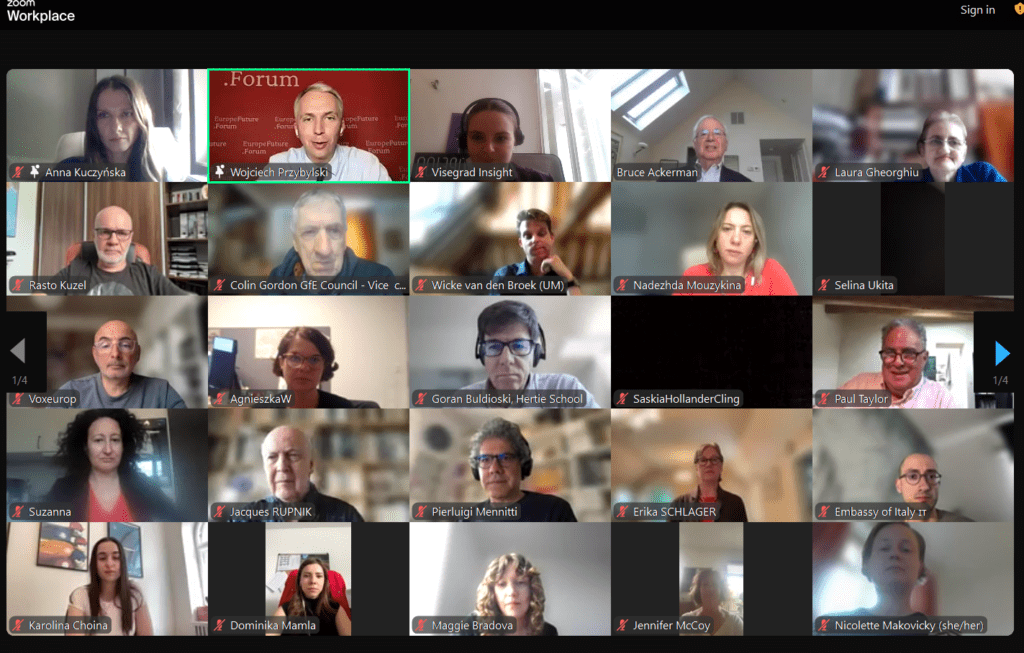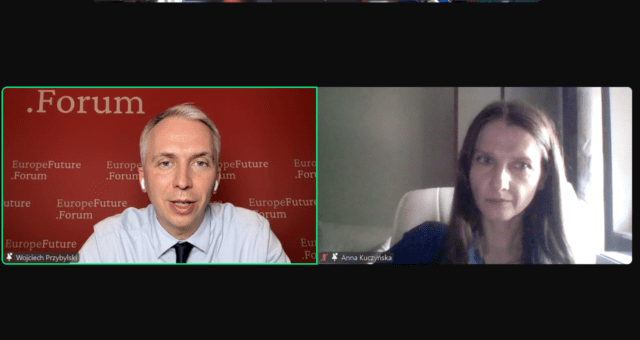Analysis
Politics
Projects
How Orbán’s Anti-Ukraine Crusade Fuels Hungary’s Election War Machine
10 October 2025
2 June 2025
With Karol Nawrocki winning the presidential election in Poland, what can we expect for the nation’s future?
Grab a 25% discount using promo code StateOFPOLAND25 and pay only €30 for a year-long access! Subscribe now: Click HERE.
In a post-election online discussion, experts Anna Kuczyńska and Wojciech Przybylski unpacked the implications of Karol Nawrocki’s narrow victory over Rafał Trzaskowski in Poland’s presidential runoff. Watch the video recap below:
With a turnout of 71.63% – one of the highest in recent years – the vote reflected deep national polarisation along geographic, generational, gender and educational lines.
Trzaskowski performed well across most regions and urban areas but failed to overcome conservative strongholds in the east.
Nawrocki, backed by Law and Justice (PiS) and closely associated with Poland’s nationalist historical policy, secured 50.89% of the vote – just over 10.6 million votes – while Trzaskowski received 49.11% (10.2 million).
Notably, the highest turnout was recorded in the Mazowieckie Voivodeship (77.2%), and the lowest in Opolskie (62.4%) – both of which were won by Trzaskowski. Yet, this regional advantage did not translate into a nationwide win.
Kuczyńska highlighted the striking demographic divides: Trzaskowski won among women (52.8%), and in cities of all sizes, and was supported predominantly by voters with higher education.
Nawrocki dominated among men (55.5%) and in rural areas, where he won 64.2% of the vote. A key generational shift was also noted: while the 2023 parliamentary election saw strong youth support for the opposition, this time Nawrocki led among voters aged 18–29 (53.2%). Trzaskowski only led among the 40–49 and 50–59 age brackets.
Vote transfers between the first and second rounds were critical. Among Nawrocki’s second-round voters, 24.7% had previously supported the libertarian and nationalist Sławomir Mentzen, 9.6% had voted for far-right candidate Grzegorz Braun and 5.9% had abstained in the first round.
Trzaskowski drew second-round support from voters who had backed Adrian Zandberg (8.6%), Magdalena Biejat (7.2%) and Szymon Hołownia (7.2%) – and mobilised 6.5% of voters who had not turned out previously.
Przybylski emphasised that mobilisation was key. Campaign statisticians in the Trzaskowski camp had forecast that if turnout exceeded 73%, the liberal candidate would win. Ultimately, this threshold was not met. Trzaskowski had to campaign across the political spectrum, trying to appeal to both centrists and the left, while Nawrocki consolidated support on the right – drawing on PiS’s base, Mentzen’s libertarians and Braun’s far-right followers.
Much of the media focus during the campaign centred not on Nawrocki’s policy proposals, but on his fitness for office. His background includes a tenure at the Museum of the Second World War in Gdańsk and later the Institute of National Remembrance, where he was seen as instrumental in reshaping historical narratives along PiS lines.
He also faced a series of controversies, including alleged involvement in hooliganism as a student, a property scandal and accusations published by Onet linking him to a pimping case. Despite – or perhaps because of – this negative attention, he remained the focal point of the campaign.
The office of the president, while partly symbolic, holds powerful tools – including the ability to veto legislation (requiring a 60% majority in parliament to override), send laws to a now-dysfunctional Constitutional Tribunal and exert influence over foreign affairs, military appointments and central bank leadership.
With the current government lacking the votes to override a veto, Nawrocki’s presidency could significantly limit the governing coalition’s ability to legislate.
International dynamics also coloured the campaign. Nawrocki received explicit support from Hungary’s Viktor Orbán, Donald Trump and CPAC which was held in Poland ahead of the vote – all part of a broader far-right alliance in the region and further afield.
By contrast, Romania’s Nicușor Dan backed Trzaskowski. Nawrocki reportedly agreed not to support Ukraine’s accession to NATO – aligning him with nationalist forces in Poland increasingly sceptical of ongoing support for Kyiv.



Speakers:
Anna Kuczyńska – Assistant professor at the Department of Sociology at Collegium Civitas and the Deputy Editor-in-Chief of Res Publica Nowa. She graduated in sociology from the University of Warsaw and the Polish School of Reportage (Polska Szkoła reportażu) at the Institute of Reportage. She obtained a PhD in social sciences from the Faculty of Sociology at the University of Warsaw.
Wojciech Przybylski – political analyst heading Visegrad Insight’s policy foresight on European affairs. His expertise includes foreign policy and political culture. Editor-in-Chief of Visegrad Insight and President of the Res Publica Foundation. Europe’s Future Fellow at IWM – Institute of Human Sciences in Vienna and Erste Foundation.